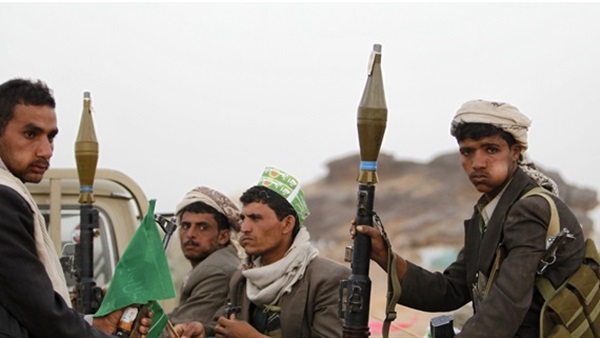Yemeni remittances: Houthis benefit, central bank colludes

The remittances of Yemeni expatriates are the first source of foreign exchange in the Yemeni economy, and in wartime it has become one of the most important sources of income for the Houthi terrorist group, especially since most of the country's population lives in the areas under the militia's control, where most financial transfers arrive.
Decline in remittances
Bank data indicates that the value of expatriate remittances amounted to about $3.3 billion in 2015, rising slightly to $3.7 billion in 2016, and remained stable at these levels in the following two years, until it began to decline in 2019 to less than $3 billion, to collapse by about 70% of these levels in 2020, which witnessed the spread of the corona pandemic globally, and then to recover again and approach $4 billion.
The remittances of Yemeni expatriates during the war constitute an important economic tributary and a major source of foreign exchange in the country, which maintained a relatively stable exchange rate and created a kind of balance between supply and demand in the exchange rate as a result of the influx of remittances of expatriates to their families in Yemen. However, the Houthis insist on looting this money by defrauding it and underestimating its true value.
Most of these transfers are received through exchange companies, most of which are run from Houthi-controlled Sanaa.
The Houthi militia is the largest beneficiary of foreign remittances, which is the largest source of foreign currency in Yemen, due to the militia’s control over official banking channels such as the central bank in Sanaa, in addition to suspicious transfer networks, including 250 new exchange companies built last year in Sanaa, Saada and other governorates.
Houthis the biggest beneficiary
According to the Yemeni Al-Mashhad website, despite these remittances being linked to UN aid, Yemeni expatriates, who number more than 7 million, and foreign trade, depriving the Houthi militia of the liquidity of remittances has become an urgent need to respond to the escalation of its attacks against economic facilities in Yemen.
The Yemeni government should take various measures to prevent the Houthis from benefiting from foreign transfers, including undermining the influence of pro-militia entities in the foreign exchange market and reducing their ability to provide commercial loans.
The Houthis' foreign transfers come from four sources, which are the transfers of Yemeni expatriates, the transfers from the liberated areas, the transfers flowing to workers in international and foreign-funded organizations, and external aid and donations flowing from various governmental and non-governmental sources.
Foreign transfers for the Houthis mean a way for them to continue the war and expand their political, military, economic and social influence.
The Yemeni government, accompanied by the central bank, must control the four sources, including expatriate transfers and aid, given that it is the internationally recognized authority and has the legal right to run state institutions.
Unofficial
It is possible to legalize foreign transfers, especially since the remittances of expatriates are the largest number of foreign exchange flowing to the Republic of Yemen, in addition to the Houthi militia being classified internationally as a terrorist organization.
The remittances of expatriates before the Houthi coup amounted to about $3.5 billion, which were officially entered transfers, and nearly the same amount was entered through unofficial methods.
The remittances of expatriates, in terms of huge flows and large numbers, are one of the main sources entering Yemen, and the majority of them are controlled by the Houthi militia through the so-called Payments Committee, due to the density of the population and those invested by the militia as hostages.
The Houthi militia is taking advantage of many nascent exchange and remittance companies to work for them, and other old ones whose main headquarters are in Sanaa.
As for the organizations' funds, they go to areas controlled by the Houthi militia because of the centralization of these organizations and their work from Sanaa, and their transfers to the areas of the militia should be legalized.
The Yemeni government must create a unified electronic system for receiving and transferring foreign transfers and linking them to a system and networking process with the Central Bank of Yemen in Aden in order to monitor them accurately, and to apply this to transfers from the areas of the legitimate government to the Houthi areas.
The Houthi militia insists on dividing the Yemeni currency in order to thwart any attempts of this kind by the internationally recognized government. However, any economic improvement that could occur and reduce the difference in the currency between Aden and Sanaa will enable the Yemeni government to implement its own controls.







